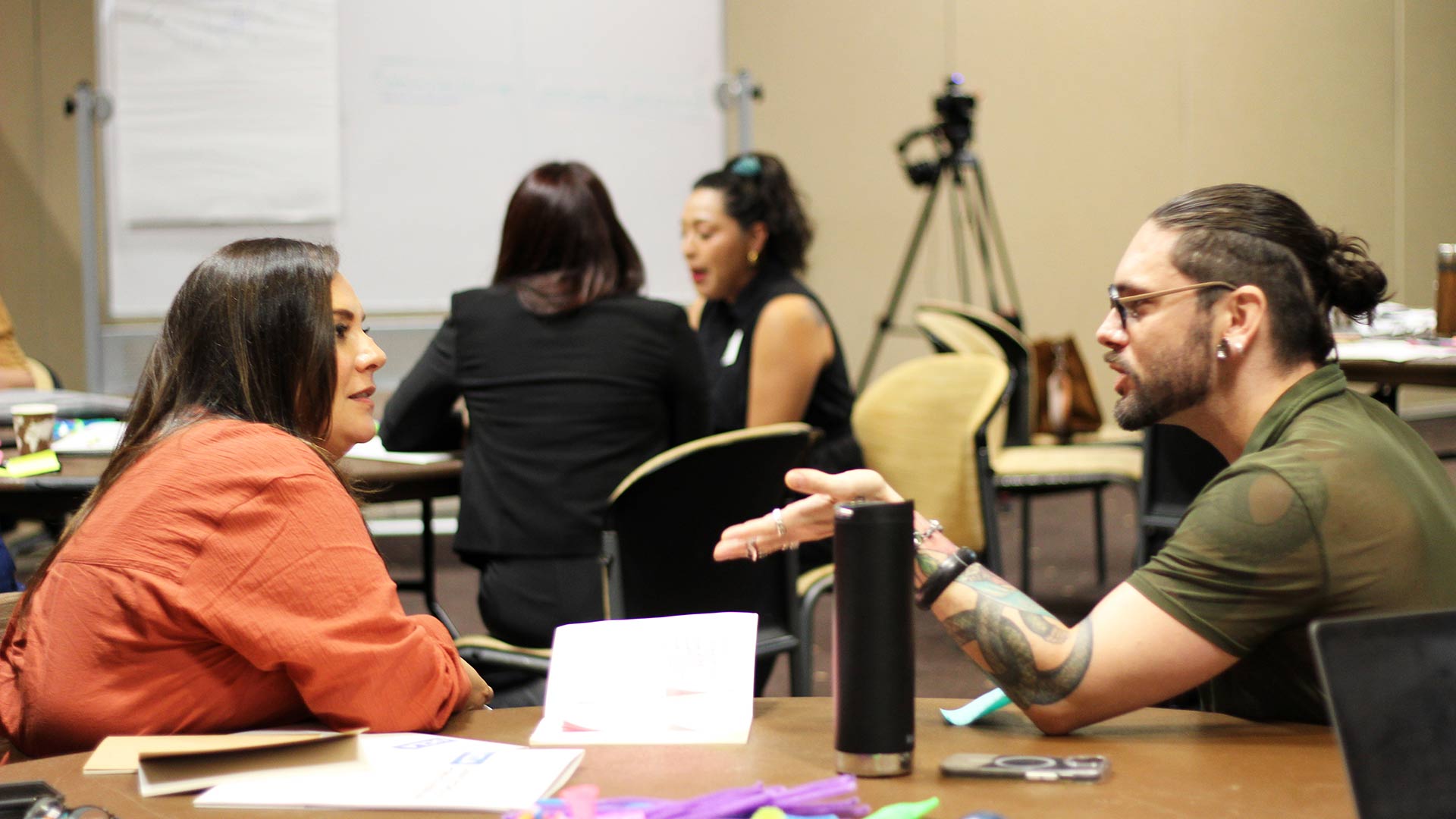 Selena Barajas and Jonatan Giudice at the Latino Data Hub Action Lab hosted by Arizona State University Center for Latina/os and American Politics Research and the University of California Los Angeles Latino Policy and Politics Institute (UCLA LPPI) on Tuesday, June 25, in Phoenix, Ariz. The inaugural workshop welcomed a cohort of 15 policy advocates for data-driven community work.
Selena Barajas and Jonatan Giudice at the Latino Data Hub Action Lab hosted by Arizona State University Center for Latina/os and American Politics Research and the University of California Los Angeles Latino Policy and Politics Institute (UCLA LPPI) on Tuesday, June 25, in Phoenix, Ariz. The inaugural workshop welcomed a cohort of 15 policy advocates for data-driven community work.
This week, the Arizona State University Center for Latina/os and American Politics Research (ASU CLAPR) and the University of California Los Angeles Latino Policy and Politics Institute (UCLA LPPI) launched the Latino Data Hub Action Lab, an initiative focused on using data to inform policies affecting Latino communities.
The inaugural cohort, made up of 15 policy advocates and community leaders in Arizona, will use data from the Latino Data Hub- an online tool utilizing data from the American Community Survey collected by the Census Bureau, to inform decision making in areas such as health, education, housing and employment.
Rodrigo Dominguez-Villegas, director of research at the UCLA LPPI, who started the project explained that the institute leverages existing census data and presents it on a user-friendly platform.
“There is no need to do any coding, there is no need to know any computer language, just by [pointing] and clicking, people are able to select a whole set of different things from what we call indicators,” Dominguez-Villegas said.
The data hub features 130 indicators or pieces of information that reveal 10 key issue areas that affect the Latino population the most including housing, health insurance, digital technology, child well-being, employment, democracy and voting, transportation, education and language, income and poverty and demographics.
“If there are differences in outcomes or in indicators across groups, that leads to thinking about questions as to why there’s differences across groups that then allows us to dig deeper into interventions, policy decisions et cetera, that target the groups that are the most impacted or that have the least access to certain things,” Dominguez-Villegas added.
The data hub team will work with the cohort for four months to integrate this data into their own community-focused work.
One of the participants is Selina Barajas, a small business owner planning to open her own coffee shop, Luna y Sol Cafe on the southside of Tucson.
Barajas was nominated for the Action Lab by a professor at the University of Arizona with whom she has been collaborating on reinvestment projects based in the south Tucson community.
“A big part of me wanting to do this research now is to showcase those numbers in the data, storytelling the narratives before this area becomes highly gentrified and before the fabric changes drastically,” Barajas said.
Dr. Angie Bautista-Chavez, assistant professor ASU CLAPR emphasized that community issues like those identified by Barajas are central to Action Lab’s work and is directly tied to politics, influence and policies.
The institutional collaboration encourages participants to ask bigger questions about the Latino community in the U.S.
“There’s this kind of shared experience, we’re all trying to do good things but really do things differently to bring more resources to our communities to intervene into inequalities,” Bautista-Chavez said.

By submitting your comments, you hereby give AZPM the right to post your comments and potentially use them in any other form of media operated by this institution.